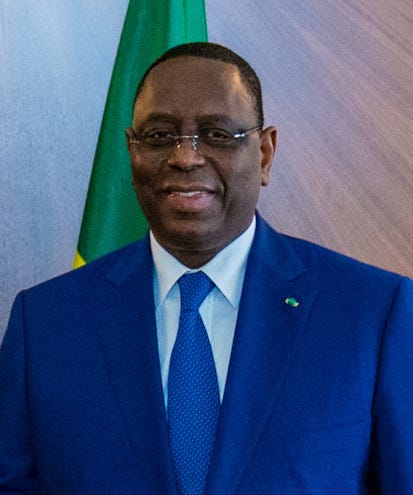
Good morning from… Can you guess where in Africa this is? (Answer at the bottom!)
Welcome to Nollywood: The Over-the-Top Movieverse That Lagos Built
So you think you know about glamorous Hollywood or super-charged Bollywood? Meet Nollywood, Nigeria’s bustling, chaotic, sometimes-genius film industry that churns out more movies than you can watch in a lifetime – and more drama than your entire in-law clan. Like its siblings across the globe, Nollywood takes its name from you-know-who in California; but, as any Lagos resident will point out, it’s an industry whose creative spark and cultural significance are entirely home-grown.
A Brief History
Old-school Nigerian celluloid cinema thrived in the 1970s, until it tripped over economic hard times in the ’80s. Cinemas shuttered, and local producers scurried around for cheaper production methods. But then came video. At some point in 1992, rumor has it a businessman with a surplus of VHS cassettes decided “why not fill these with content?” and voilà – Living in Bondage was born, launching the brand-new “direct-to-video” era known as Nollywood. Overnight success, insane local mania, and the unstoppable wave of no-frills, melodrama-laced flicks soon captivated audiences not just in Nigeria but all over the diaspora, from Caribbean enclaves to African communities in Europe and the Americas as per the Financial Times.
By the 1990s, these homebrewed films – often featuring stories about good vs. evil, love gone awry, or comedic neighborhood shenanigans – pumped out at a speed that’d make Netflix’s content chief faint. Budgets were (ahem) modest, special effects limited to rubber snakes and thunderclap noises.
Yet these works had a heart: they showcased local languages, Yoruba or Igbo or pidgin English, and championed everyday folks who recognized themselves in the characters. Think more “we shot it in three days in a friend’s living room” than big Hollywood sets – but that was precisely the charm.
When Nigeria’s economy somewhat stabilized in the early 2000s and actual cinemas began reappearing in major cities, an evolution emerged. Producers wanted bigger production values, better equipment, even a chance to charge actual ticket prices. Films such as The Figurine (2009) showcased these slicker, more sophisticated styles, giving rise to something often called “New Nollywood.”
Lately, global streamers have dipped a toe in Nollywood: Netflix has snapped up titles from major directors, offering these once purely local flicks to an audience as far away as where you are reading this from.
With bigger budgets, global streamers, and unstoppable local energy, Nollywood continues to outdo itself, from soap opera drama to slick musicals to gritty crime exposés. Sure, distribution is chaotic, and budgets remain shaky for many. But at its heart, Nollywood is still that unmissable juggernaut: loud, vibrant, sometimes messy, forever unstoppable! If that isn’t star power, what is?
By the way, if you want to know what the 10 best Nollywood movies/series of the year are, take a look at this list by Open Country Mag.
Lake Kivu: Beautiful, Dangerous, and Fresh Out of Fish?
Lake Kivu—straddling Rwanda and DRC—is basically nature's ticking gas bomb, loaded with methane and CO₂ that could burst any day. But for the locals, it's not the explosive lake that's worrying them; it’s the dwindling supply of sambaza, their mainstay sardine-like fish.
Sure, the lake generates 30% of Rwanda’s electricity via methane extraction, yet many villagers like Thérèse still live without power, charging phones at neighbors' houses. Fishermen like Claude, earning just 30p a day, are left wondering, "Where did all the fish go?"
To dive deeper, take a look at this beautiful Guardian photo essay.
Senegal Debates Macky Sall’s Legacy
In Senegal, the beans have been spilled – or so says the national Court of Auditors, which recently dropped a bombshell report alleging that former President Macky Sall oversaw wildly inaccurate bookkeeping of public finances. Now Sall, who’s been enjoying life in Morocco since leaving office last year, is bristling at being called a potential “gang leader” by a Senegalese government spokesman. But hey, that’s politics, isn’t it?
According to the court’s tally, Sall’s last full budget year was overspent by a gaping 12.3% deficit – more than double the official 4.9% under his regime. Oops. The official line is that the fiasco represents “catastrophic mismanagement.” Sall, naturally, calls all this “political” and insists he’s innocent.
Despite his protests, government spokesman Moustapha Sarre says the ex-president’s new role might be “defendant number one.” Sarre is not mincing words, telling local media that Sall “could even be considered as the leader of a gang that committed criminal acts.” If it goes further, this will be the first time a onetime Senegalese head of state stands trial for something that happened on their watch.
Complicating the drama is an amnesty law passed just before the 2024 election that gave certain individuals involved in violent crackdowns a get-out-of-jail-free card. The new President, Bassirou Diomaye Faye, says he’s ready to tear it up.
In any case, with allegations of reckless budget figures, vow-breaking politicians, and an ex-leader chilling abroad, Senegal might just be about to serve up a legal drama we’ve never quite seen before – at least not in the calm, stable democracy this corner of Africa is known for.
Food for Thought
“A dirty tongue litters its owner.”
— Rwanda Proverb
And the Answer is…
The photo is taken in Conakry, Guinea! You can also send in your own photos, alongside the location, and we’ll do our best to feature them.





